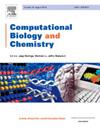PIM-1中pH值诱导构象转换的研究:多光谱和MD模拟综合研究。
IF 2.6
4区 生物学
Q2 BIOLOGY
引用次数: 0
摘要
PIM-1 是一种 Ser/Thr 激酶,由于其在前列腺癌和乳腺癌等多种癌症中的重要作用,已被广泛研究为癌症治疗的潜在靶点。鉴于 PIM-1 在癌症中的重要作用,研究人员正在研究 PIM-1 的结构,以便通过药理抑制发现治疗干预措施。本研究利用各种光谱和计算技术研究了 PIM-1 在不同 pH 值下的结构和构象变化。光谱结果表明,PIM-1 在 7.0-9.0 的 pH 值范围内保持其二级和三级结构。然而,在 5.0-6.0 的酸性 pH 值范围内,蛋白质会发生聚集。此外,激酶测定表明,PIM-1 在 pH 值为 7.0-9.0 的范围内具有最佳活性。随后,我们进行了 100 ns 的全原子分子动力学(MD)模拟,以了解 pH 值对 PIM-1 分子结构稳定性的影响。MD 模拟分析表明,PIM-1 在碱性条件下保持原生构象,在酸性条件下也有一些残余波动。我们的 MD 模拟、光谱和酶活性研究之间存在很强的相关性。了解 PIM-1 结构的 pH 依赖性变化可以帮助人们深入了解它在疾病和细胞稳态中的作用,尤其是在不同 pH 条件下的蛋白质功能。本文章由计算机程序翻译,如有差异,请以英文原文为准。
Investigating pH-induced conformational switch in PIM-1: An integrated multi spectroscopic and MD simulation study
PIM-1 is a Ser/Thr kinase, which has been extensively studied as a potential target for cancer therapy due to its significant roles in various cancers, including prostate and breast cancers. Given its importance in cancer, researchers are investigating the structure of PIM-1 for pharmacological inhibition to discover therapeutic intervention. This study examines structural and conformational changes in PIM-1 across different pH using various spectroscopic and computational techniques. Spectroscopic results indicate that PIM-1 maintains its secondary and tertiary structure within the pH range of 7.0–9.0. However, protein aggregation occurs in the acidic pH range of 5.0–6.0. Additionally, kinase assays suggested that PIM-1 activity is optimal within the pH range of 7.0–9.0. Subsequently, we performed a 100 ns all-atom molecular dynamics (MD) simulation to see the effect of pH on PIM-1 structural stability at the molecular level. MD simulation analysis revealed that PIM-1 retains its native conformation in alkaline conditions, with some residual fluctuations in acidic conditions as well. A strong correlation was observed between our MD simulation, spectroscopic, and enzymatic activity studies. Understanding the pH-dependent structural changes of PIM-1 can provide insights into its role in disease conditions and cellular homeostasis, particularly regarding protein function under varying pH conditions.
求助全文
通过发布文献求助,成功后即可免费获取论文全文。
去求助
来源期刊

Computational Biology and Chemistry
生物-计算机:跨学科应用
CiteScore
6.10
自引率
3.20%
发文量
142
审稿时长
24 days
期刊介绍:
Computational Biology and Chemistry publishes original research papers and review articles in all areas of computational life sciences. High quality research contributions with a major computational component in the areas of nucleic acid and protein sequence research, molecular evolution, molecular genetics (functional genomics and proteomics), theory and practice of either biology-specific or chemical-biology-specific modeling, and structural biology of nucleic acids and proteins are particularly welcome. Exceptionally high quality research work in bioinformatics, systems biology, ecology, computational pharmacology, metabolism, biomedical engineering, epidemiology, and statistical genetics will also be considered.
Given their inherent uncertainty, protein modeling and molecular docking studies should be thoroughly validated. In the absence of experimental results for validation, the use of molecular dynamics simulations along with detailed free energy calculations, for example, should be used as complementary techniques to support the major conclusions. Submissions of premature modeling exercises without additional biological insights will not be considered.
Review articles will generally be commissioned by the editors and should not be submitted to the journal without explicit invitation. However prospective authors are welcome to send a brief (one to three pages) synopsis, which will be evaluated by the editors.
 求助内容:
求助内容: 应助结果提醒方式:
应助结果提醒方式:


